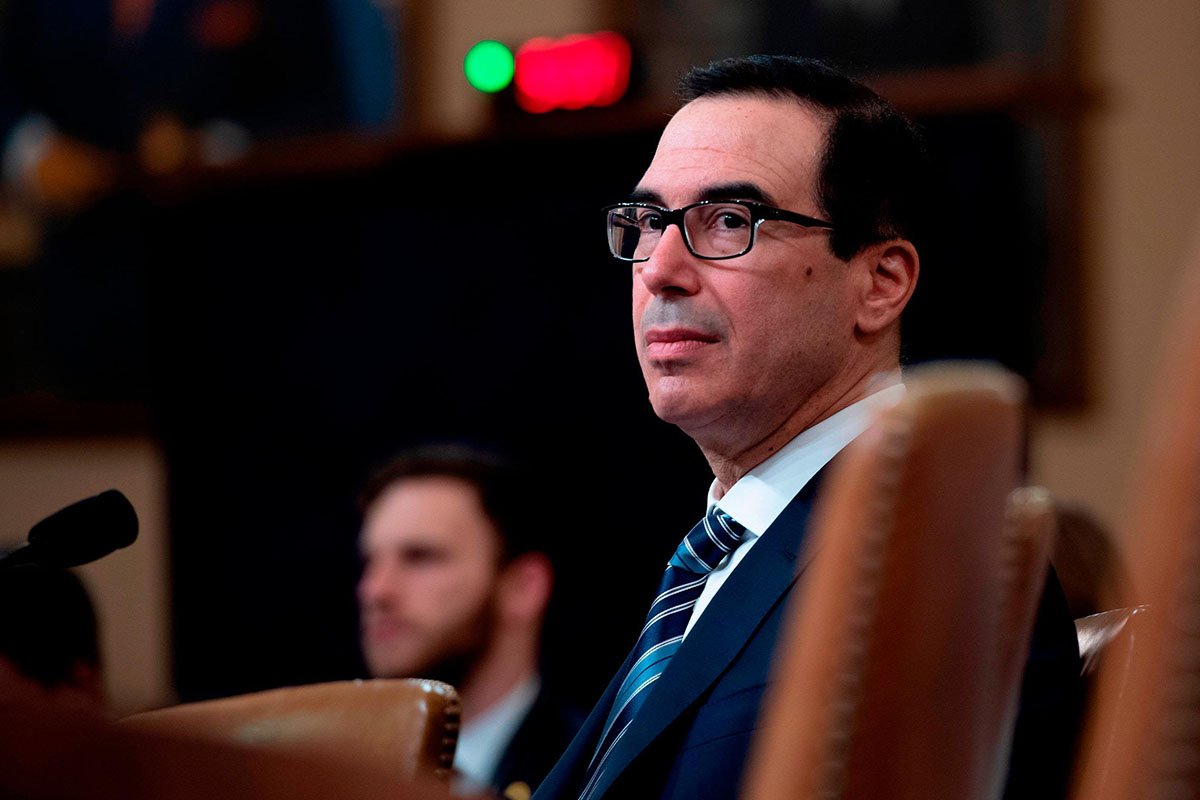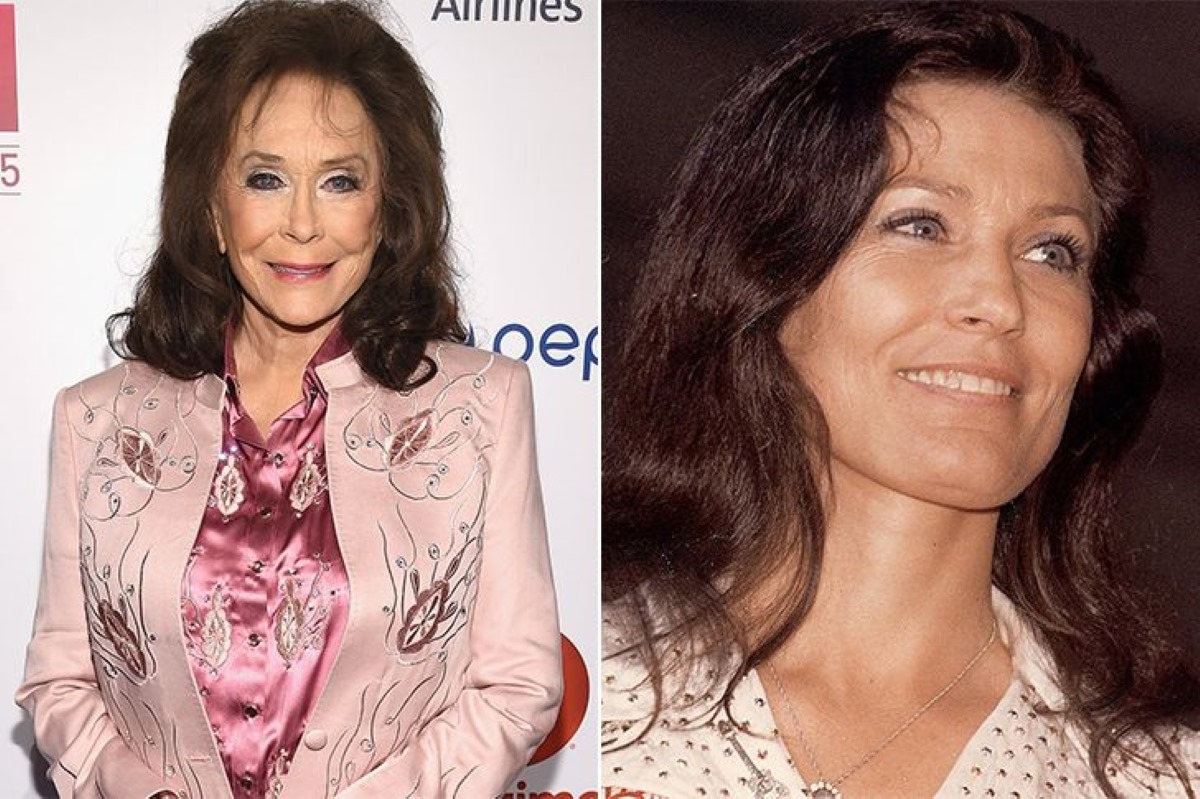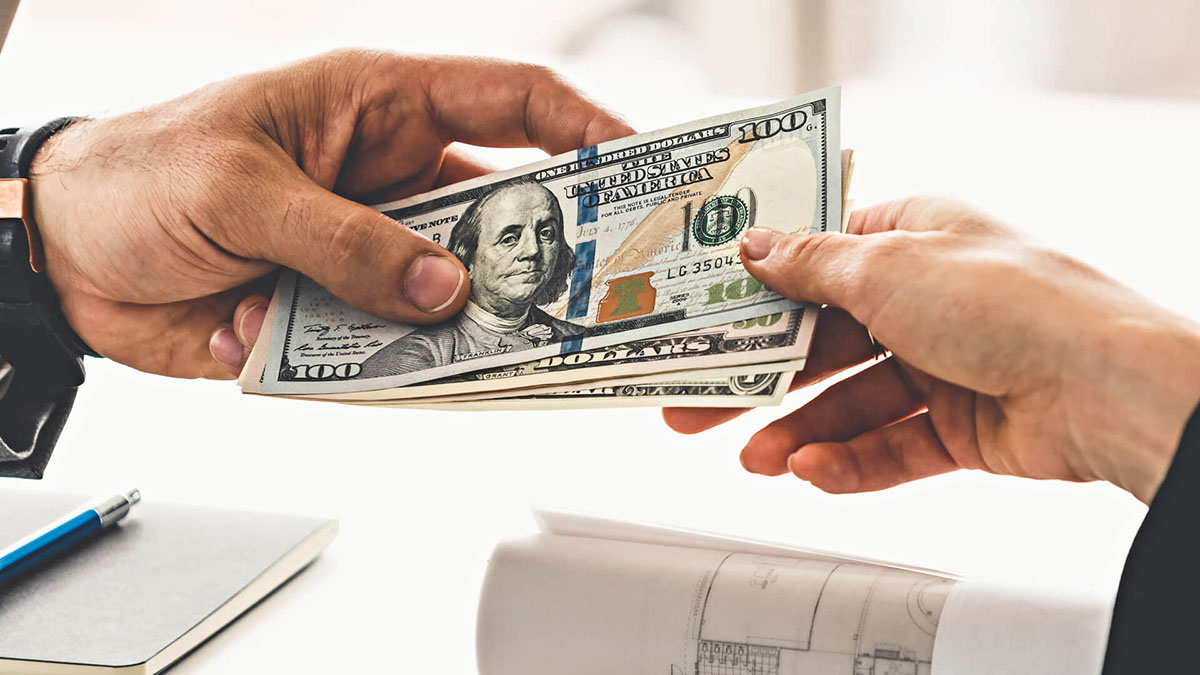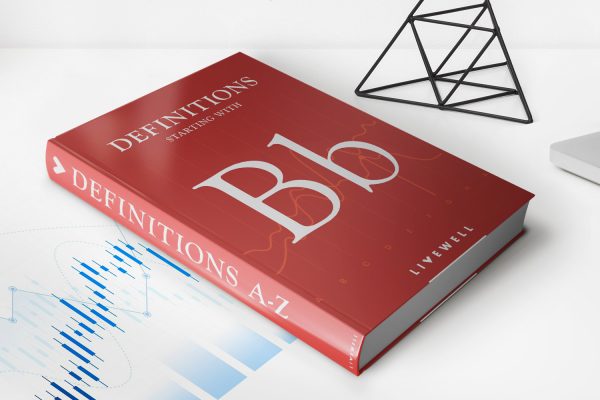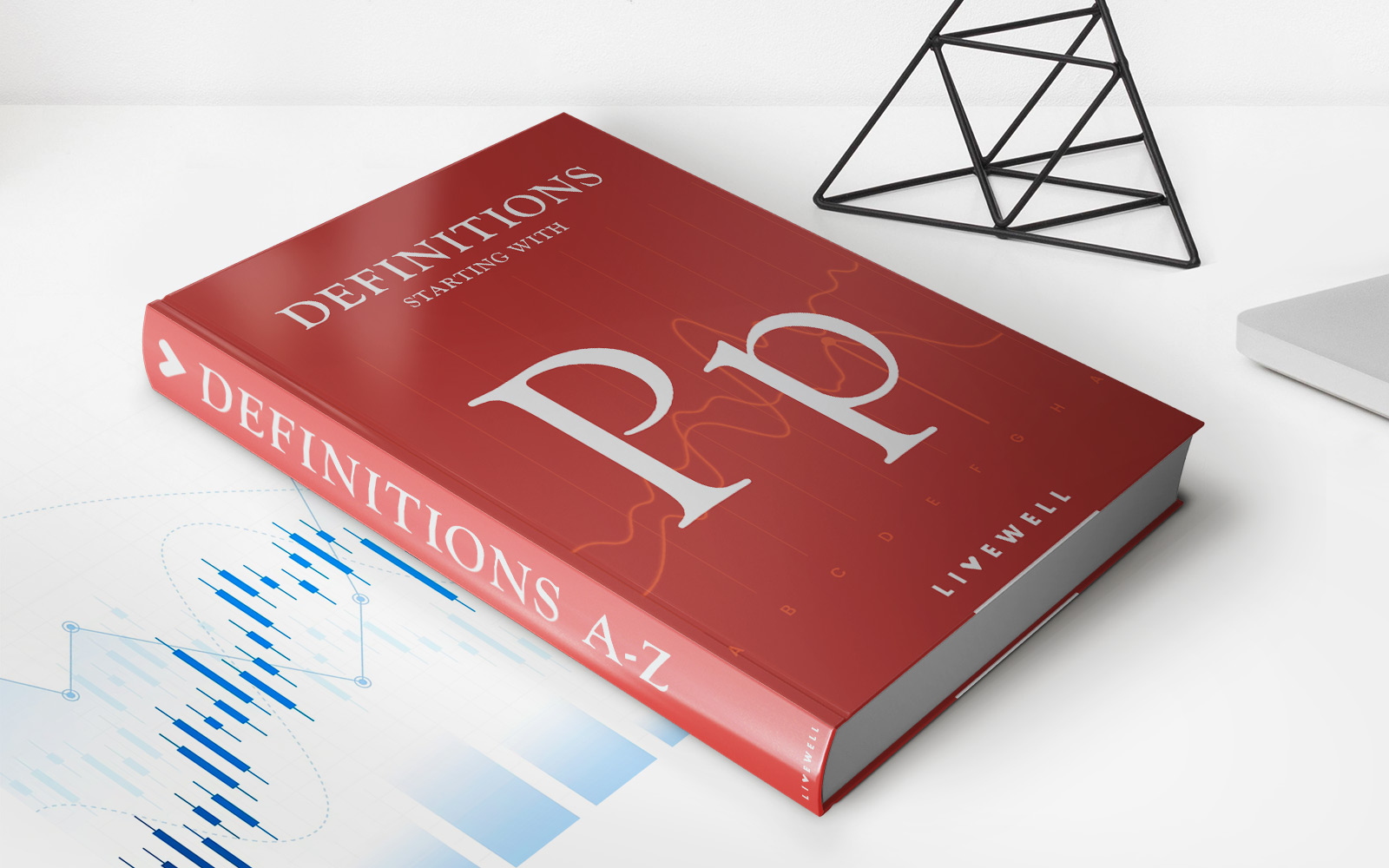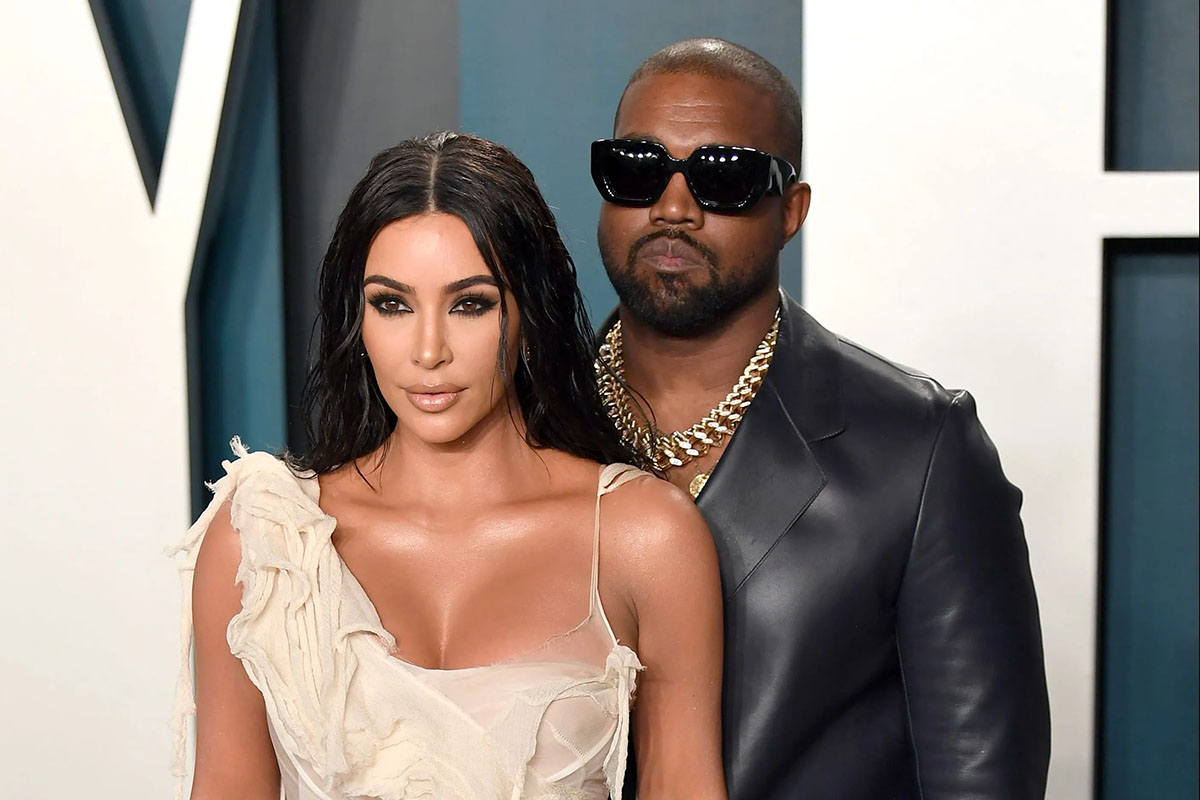

Finance
Celebrities Who Received PPP Loans
Published: February 17, 2024
Discover how celebrities navigated their finances by receiving PPP loans. Learn about their financial strategies and decisions. Explore the intersection of celebrity and finance.
(Many of the links in this article redirect to a specific reviewed product. Your purchase of these products through affiliate links helps to generate commission for LiveWell, at no extra cost. Learn more)
Table of Contents
Introduction
The Surprising Truth: Celebrities Who Received PPP Loans
The Paycheck Protection Program (PPP) was established by the U.S. government to provide financial assistance to small businesses and self-employed individuals during the COVID-19 pandemic. However, recent revelations have shed light on a surprising aspect of the program: several well-known celebrities and high-profile personalities also received PPP loans.
This unexpected disclosure has sparked widespread public interest and raised pertinent questions about the allocation of these funds. As the details continue to emerge, it has become evident that the issue of PPP loans granted to celebrities goes beyond mere financial transactions. It delves into the realms of public perception, ethical considerations, and the broader socio-economic impact.
In this article, we will delve into the intricacies of the PPP loan program, explore the criteria for eligibility, and provide an insightful list of notable celebrities who availed themselves of these loans. Moreover, we will analyze the public reaction to these revelations, shedding light on the diverse viewpoints and implications of this controversial development.
Join us on this captivating journey as we unravel the intriguing narrative of celebrities and PPP loans, offering a comprehensive understanding of the multifaceted dynamics at play.
Overview of PPP Loans
Understanding the Paycheck Protection Program
The Paycheck Protection Program (PPP) was introduced as part of the Coronavirus Aid, Relief, and Economic Security (CARES) Act, designed to provide financial relief to small businesses, independent contractors, and self-employed individuals adversely impacted by the COVID-19 pandemic. The primary objective of the PPP was to help organizations retain their employees and cover essential operational expenses during the economic downturn caused by the pandemic.
Under the PPP, eligible recipients could apply for forgivable loans to cover payroll costs, rent, mortgage interest, and utilities, thus facilitating the sustenance of their businesses and the preservation of jobs. The program aimed to mitigate the adverse effects of the pandemic on the economy by offering a lifeline to struggling businesses, enabling them to navigate the unprecedented challenges and uncertainties.
PPP loans were made available through participating lenders, including banks and credit unions, with the Small Business Administration (SBA) overseeing the program. The initial round of funding allocated $349 billion to the PPP, with subsequent rounds further bolstering the program’s financial resources to support a broader spectrum of businesses and individuals in need.
While the PPP was instrumental in extending crucial financial support to countless small businesses and self-employed individuals, the recent revelation of celebrities and prominent figures receiving PPP loans has sparked intense public interest and debate. This unforeseen dimension has prompted a reevaluation of the program’s implementation and has given rise to ethical and moral considerations regarding the allocation of funds.
As we delve deeper into the intricacies of PPP loans and their broader implications, it becomes increasingly apparent that the program’s impact transcends mere financial assistance, permeating the realms of public perception, societal values, and ethical discourse.
Criteria for PPP Loan Eligibility
Navigating the Eligibility Parameters
The eligibility criteria for PPP loans were established to encompass a wide array of entities, including small businesses, sole proprietors, independent contractors, and self-employed individuals. The overarching goal was to extend support to those grappling with the economic repercussions of the pandemic, thereby fostering the preservation of jobs and the continuity of business operations.
To qualify for a PPP loan, applicants were required to meet specific criteria, which included demonstrating economic need, maintaining compliance with program guidelines, and adhering to the stipulated documentation and verification processes. Key eligibility parameters encompassed the following aspects:
- Business Structure: Entities eligible for PPP loans comprised small businesses, 501(c)(3) nonprofit organizations, 501(c)(19) veterans’ organizations, and Tribal business concerns, in addition to sole proprietors, independent contractors, and self-employed individuals.
- Employee Retention: Recipients were mandated to utilize the loan funds primarily for payroll costs to retain employees, thereby safeguarding jobs and sustaining workforce stability.
- Financial Hardship: Applicants were required to substantiate the adverse impact of the pandemic on their business operations, affirming the necessity of financial assistance to maintain operational continuity.
- Loan Forgiveness: PPP loans could be forgivable if allocated funds were utilized for eligible expenses, such as payroll, rent, mortgage interest, and utilities, with a substantial portion designated for payroll costs.
- Application Process: Prospective borrowers were tasked with providing accurate financial information, tax documents, and other pertinent records to facilitate the loan application and approval process.
While the eligibility parameters aimed to encompass a broad spectrum of businesses and individuals in need, the recent revelation of celebrities availing themselves of PPP loans has prompted scrutiny and debate regarding the equitable distribution of funds. This unforeseen development has ignited discussions about the ethical considerations surrounding the allocation of financial assistance and the implications for genuine small businesses and self-employed individuals facing acute economic distress.
As we navigate the complexities of PPP loan eligibility, it becomes imperative to examine the broader implications of these criteria and their alignment with the program’s fundamental objectives.
List of Celebrities Who Received PPP Loans
Revelations and Public Scrutiny
The disclosure of celebrities and high-profile personalities receiving PPP loans has sparked widespread intrigue and public scrutiny, shedding light on the unexpected beneficiaries of the program. Among the notable figures who availed themselves of PPP loans are:
- Kanye West: The renowned musician and entrepreneur’s Yeezy LLC received a substantial PPP loan, drawing attention to the allocation of funds to a prominent public figure.
- Tom Brady: The acclaimed NFL quarterback’s TB12, Inc. also secured a PPP loan, prompting discussions about the financial stability of high-earning individuals and their eligibility for such assistance.
- Joel Osteen: The prominent televangelist’s Lakewood Church, a non-profit organization, obtained a significant PPP loan, raising ethical considerations regarding the allocation of funds to religious institutions and influential figures.
- Ruth’s Chris Steak House: The upscale restaurant chain, frequented by celebrities and affluent patrons, received a notable PPP loan, prompting debates about the equitable distribution of funds to large corporate entities.
- Several Professional Sports Teams: Various sports franchises, including those in the NBA and NFL, garnered PPP loans, fueling discussions about the financial standing of sports organizations and the allocation of funds within the sports industry.
These revelations have elicited diverse reactions from the public, igniting debates about the ethical implications of affluent individuals and prominent entities availing themselves of PPP loans intended for small businesses and self-employed individuals facing dire economic challenges. The public scrutiny surrounding these disclosures has underscored the complexities of the PPP program and its intersection with public perception, ethical considerations, and the equitable distribution of financial assistance.
As the public digests these revelations, the discourse surrounding celebrities and PPP loans continues to evolve, prompting introspection and critical analysis of the program’s efficacy, transparency, and ethical alignment with its intended beneficiaries.
Analysis of Public Reaction
Navigating Diverse Perspectives
The public reaction to the disclosure of celebrities and high-profile entities receiving PPP loans has been characterized by a spectrum of viewpoints, ranging from skepticism and criticism to nuanced understanding and empathy.
Skepticism and Criticism: Many individuals have expressed skepticism and disapproval regarding the allocation of PPP funds to affluent celebrities and influential organizations. This sentiment stems from concerns about the equitable distribution of financial assistance, particularly in light of small businesses and independent contractors grappling with acute economic hardships. The revelation of prominent figures availing themselves of PPP loans has fueled perceptions of inequity and has prompted calls for greater transparency and accountability in the allocation of public funds.
Ethical Considerations: The public discourse has delved into ethical considerations surrounding the eligibility of high-earning individuals and well-established entities for PPP loans. This introspective dialogue has underscored the need for a nuanced approach to assessing economic need and the ethical implications of affluent recipients accessing funds intended for businesses facing genuine financial distress. The ethical dimensions of this issue have prompted introspection and critical analysis of the program’s alignment with its fundamental objectives and the broader societal impact of these revelations.
Nuanced Understanding and Empathy: Amidst the scrutiny and critique, there exists a nuanced understanding of the complexities inherent in the PPP loan disclosures. Some individuals have emphasized the multifaceted nature of economic challenges, acknowledging that certain industries and entities, despite their prominence, may also confront financial uncertainties and operational disruptions. This perspective underscores the importance of contextualizing the allocation of PPP funds within the broader landscape of economic upheaval and the diverse array of entities navigating unprecedented challenges.
As the public reaction unfolds, it becomes evident that the disclosure of celebrities and high-profile figures receiving PPP loans has catalyzed a multifaceted discourse, prompting introspection, critical analysis, and a reevaluation of the program’s efficacy and ethical alignment. The convergence of diverse perspectives underscores the complexity of this issue and the imperative to navigate it with sensitivity, empathy, and a comprehensive understanding of the multifaceted dynamics at play.
Conclusion
Navigating Complex Narratives
The revelation of celebrities and high-profile entities receiving PPP loans has unveiled a complex narrative that transcends mere financial transactions, delving into the realms of public perception, ethical considerations, and the broader socio-economic impact. As the public grapples with these revelations, it becomes imperative to navigate the ensuing discourse with a nuanced understanding and a comprehensive appreciation of the multifaceted dynamics at play.
While the public reaction has encompassed skepticism, ethical considerations, and nuanced understanding, it is evident that this unexpected dimension has prompted critical introspection and reevaluation of the PPP program’s implementation and its alignment with its fundamental objectives. The discourse surrounding the allocation of PPP funds to affluent individuals and prominent entities has underscored the imperative for greater transparency, ethical discernment, and equitable distribution of financial assistance.
As we conclude this exploration, it is crucial to acknowledge the complexities inherent in the PPP loan disclosures and the diverse perspectives that have emerged. The public scrutiny and introspective dialogue surrounding these revelations serve as a catalyst for fostering greater transparency, accountability, and ethical alignment within the realm of financial assistance programs.
Ultimately, the disclosure of celebrities and high-profile figures receiving PPP loans invites us to navigate this multifaceted narrative with empathy, critical analysis, and a commitment to fostering an equitable and inclusive approach to addressing the economic challenges precipitated by the COVID-19 pandemic. By embracing a comprehensive understanding of the diverse implications at hand, we can endeavor to shape a more transparent, ethical, and empathetic framework for the allocation of financial assistance, thereby fostering resilience and inclusivity within our societal fabric.




